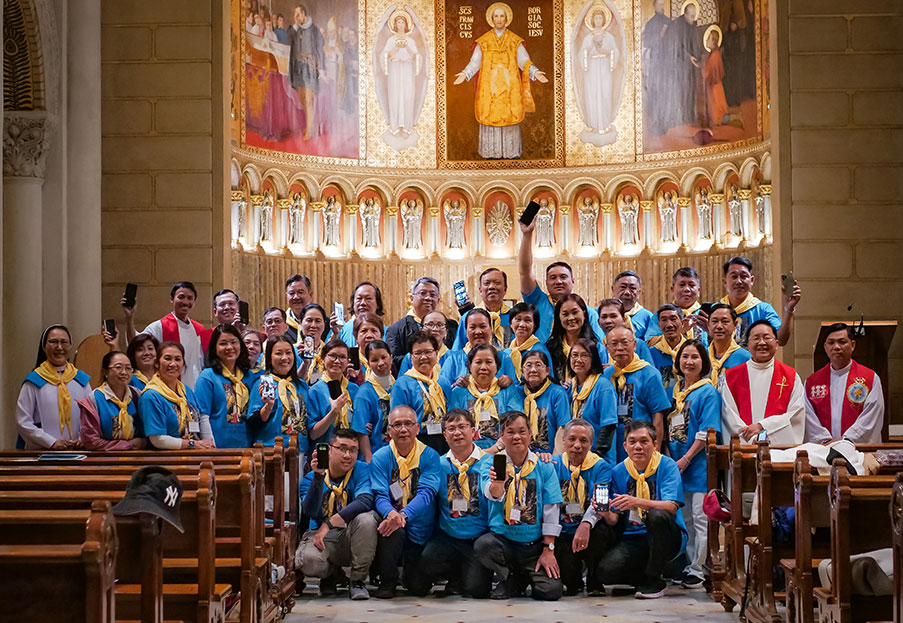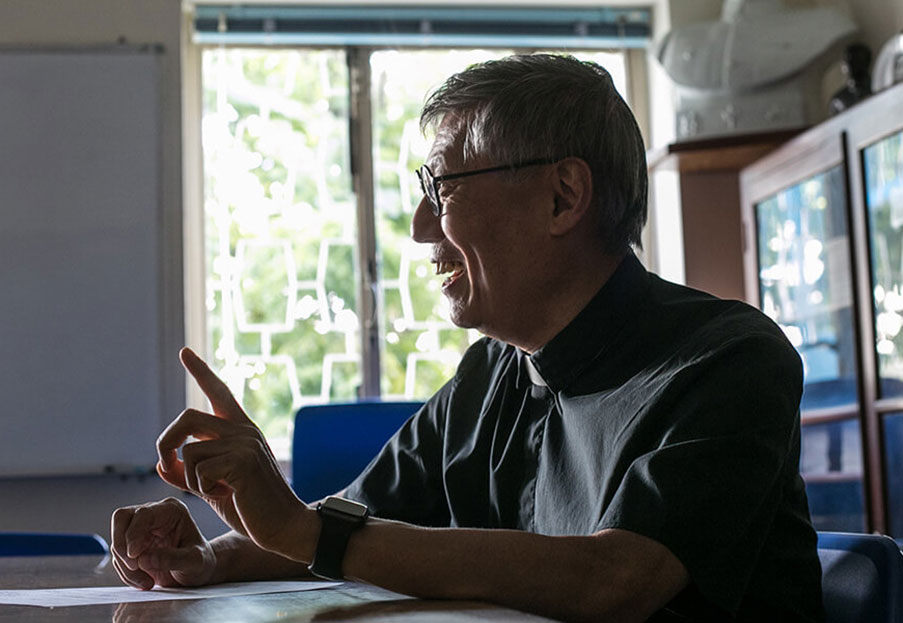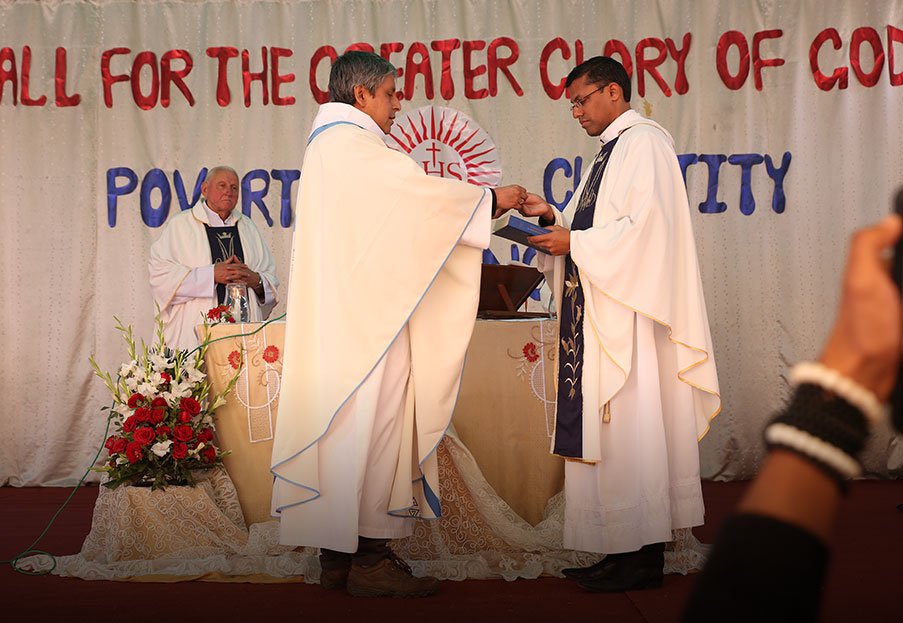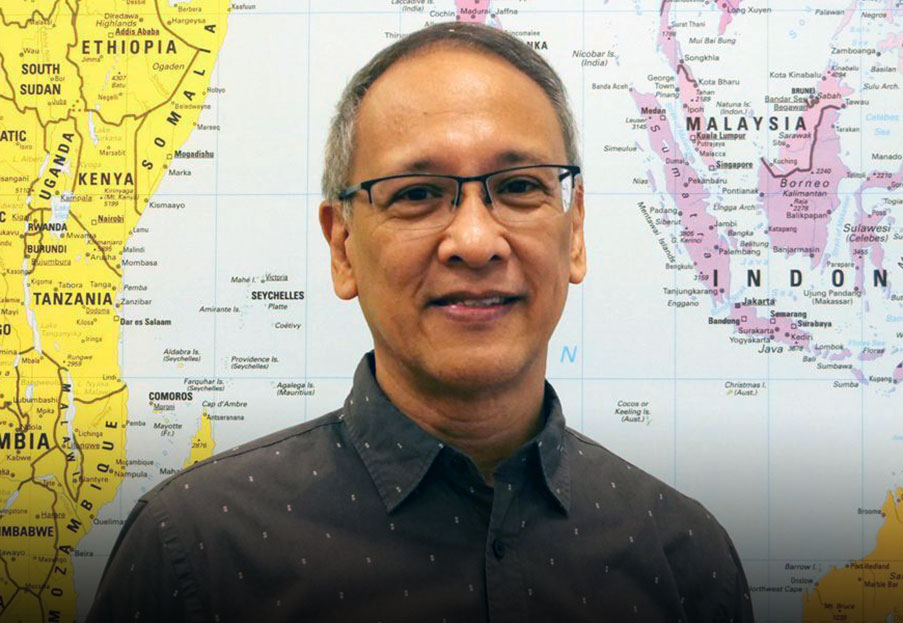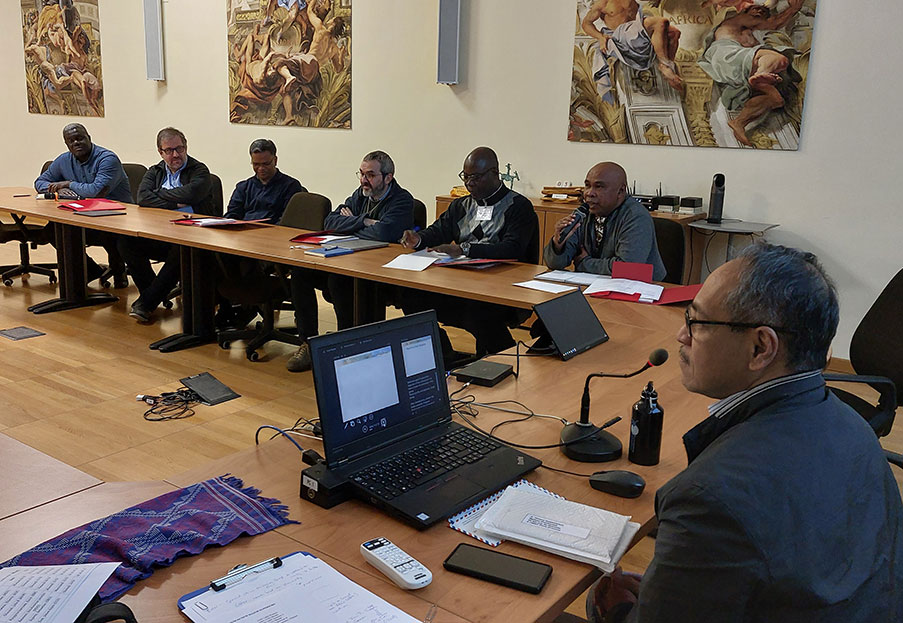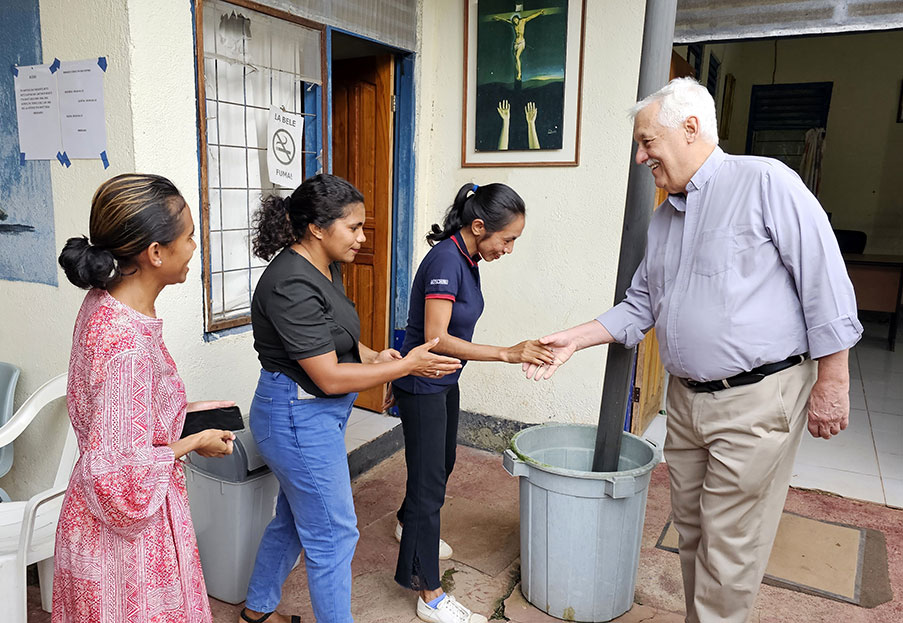For JCAP, the pandemic has generated even more commitment
Just like the other Conferences of the Society in recent months, the Conference of Asia-Pacific held its July meeting remotely, rather than in Dili, East Timor, where it had been scheduled.
In his report on the previous six months, the
President, Fr. Antonio Moreno, shared that he considered it a providential
grace that the Major Superiors of the region were able to make an eight-day
retreat together, from 1 to 8 February, just before the declaration of the
COVID-19 pandemic. The retreat served to strengthen the spirit of discernment
and prayer for the months that followed, during which many activities had to be
cancelled or postponed.
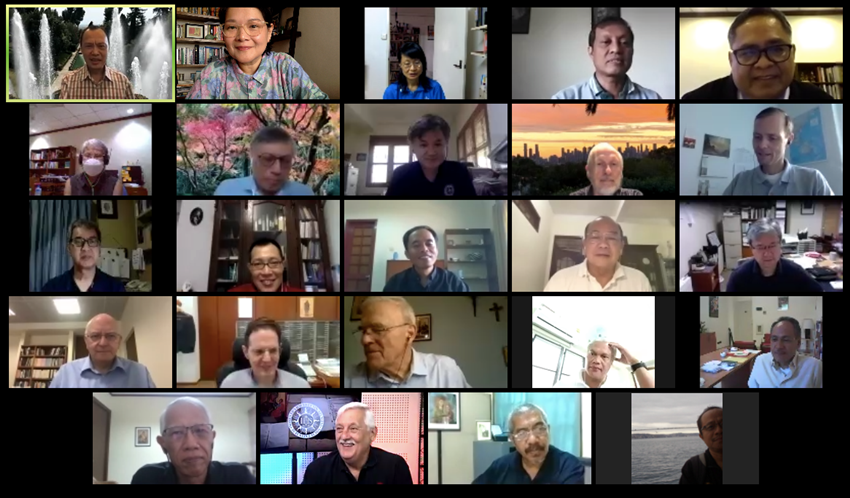
He confessed that the pandemic challenged the ability of the Conference and its members to adjust and adapt. Yet, according to Fr. Moreno, this year’s exceptional situation has allowed the Jesuits, their partners and their works to hear the calls for solidarity, especially for the refugees in Indonesia and Myanmar. A real solidarity has been shown. In fact, in their virtual meetings, several networks of apostolic activities (social apostolate, education, Ignatian spirituality, culture of protection, among others) explored new possibilities for inter-sectoral collaboration during this period. All the Provinces and Regions of Asia-Pacific are involved, according to their local contexts, in the accompaniment of the poor and vulnerable.
The JCAP President once again underlined how
much grace Fr. Adolfo Nicolás, who belonged to one of the Provinces of the Conference,
was a source of grace even on the occasion of his death. Throughout his life,
during his illness and in his passage to the heaven, he will have been a sign
of the presence of God among us. Finally, he mentioned that a discernment
group, in connection with The Beijing
Center, was looking into the Chinese mission.

The agenda for the JCAP Major
Superiors Assembly included - besides the presentation of Father General and
the sharing with him - a time of spiritual conversations about the impact of
the pandemic on the life and mission of the Society. The culture of protection
and ways of moving forward were also discussed, as well as the changing needs
in the field of formation and, more specifically, the proposals of a working
group on cooperation for theological studies. The Region of East Timor was also
to report on all its commitments, as the attention of the Provincials is usually
focused on the host Province. Even if the meeting could not take place in Dili,
a specific time of the agenda was devoted to this unit of the Conference.
Finally, the work of two committees, those of Planning and Governance, were
presented and analysed during the week.
